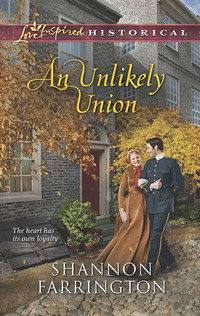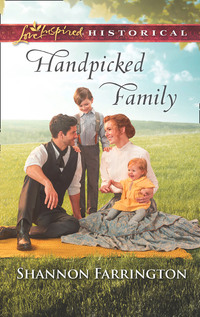
Полная версия
Second Chance Love
“I loved him!” Elizabeth cried.
“And he, you,” Mrs. Mackay whispered. “No one on this earth could have loved you more.”
That isn’t true, David thought. That isn’t the whole story. Suddenly he wanted her to know why he had done what he did. He wanted to tell her he’d been in love with her from the moment she first walked in to his ward. His mind told him the confession would bring relief to him, but he knew for her, it would only bring more pain. So, he kept his mouth shut. Just like he had done every other time she was near him.
By now her cries had drawn the attention of the entire house. Her mother, sister and her other friends soon surrounded them. Trudy looked at him, her expression a mixture of embarrassment and pity. “Don’t worry, David. We’ll take care of her.”
“No,” Elizabeth cried.
“Let him see to Jeremiah,” Miss Hastings insisted. “It is what is best.”
“No...”
“Come with us, Elizabeth,” Mrs. Mackay gently urged.
The women pulled her to her feet, escorting her to the staircase. He watched helplessly as Elizabeth disappeared in a swirl of hazy black crepe.
“David,” he then heard her mother quietly say, “perhaps it would be best if you now see to your brother.”
“Yes, of course.”
He did not have to search far for the other men. Elizabeth’s cries had drawn each of them to the parlor, as well. In quiet reverence the pallbearers took their places alongside Jeremiah’s casket. David claimed his position at the head of the processional, his body and mind now numb.
Jeremiah’s flag-draped coffin was carried through the front door, the barren garden and out to the street. Carefully it was placed in the hearse. The pallbearers and remaining men then formed a line behind the black-adorned carriage. All of the women had elected to stay behind. David wondered if they were still surrounding Elizabeth. Were they offering words of comfort to her, words he could not give? Words she would not accept from him?
He glanced toward the upstairs windows. Part of him wished to return to the house, seek her out, if only to say goodbye. The rest of him knew it was better this way.
Just then, Mrs. Martin stepped from the porch and embraced him. “God keep you, David,” she whispered. “May He ease your troubled heart.”
“Ma’am,” he said, “I wish there was something I could do...”
“I know you do, son, but there is nothing to be done. Return to your home, and may God keep you from any more sorrow.”
Not knowing what else to say, he respectfully kissed her cheek, then directed the men to move. The processional made its way through the slush-covered streets toward the train station. As they passed through Monument Square, carriages halted. The citizens of Baltimore removed their hats out of respect for the fallen Union soldier, although in all probability many of them had advocated secession. Honoring a life took precedence over politics this day, yet the gesture offered David little comfort. He wondered how many more funerals this city would witness before this war was over.
At the President Street station, Jeremiah’s casket was loaded on to a freight car. His fellow soldiers offered a last salute, and the men of Baltimore, their final condolences. David then boarded the northbound train, solemnly claiming a seat.
Within a few moments he heard the whispers around him. Though the mood was still somber, his fellow Massachusetts comrades were speaking of what they would do when they reached Boston. David tried to focus his thoughts forward, as well, reminding himself that he also was going home.
But I am returning alone...
The car lurched forward as the train began to roll. The coal yards, docks and military fortifications soon gave way to snow-covered fields and ice-encased forests. Glass-like icicles dangled from bare tree limbs. He tried to focus on the peaceful scene outside his window, but his thoughts kept returning to the anguish Jeremiah had suffered in those final hours. David had been powerless to do anything to help him.
Elizabeth’s words sliced his soul. “You caused all this!”
If he could turn the clock back, he would, and this time he would not allow his personal feelings to interfere. He’d swallow his heart and stand beside his brother as he kissed his bride, content to be Elizabeth’s brother-in-law.
But it is too late. Jeremiah is gone, and Elizabeth will never forgive me.
His hands began to tremble. How was he to handle returning to Boston? How could he face his family? His parents had not even the luxury of saying goodbye. His sister Clara’s difficult delivery of her first child had kept them from making the journey to Baltimore. He knew his mother and father would not blame him for Jeremiah’s passing. Their telegram had confirmed it. Though they were heartbroken, they accepted their son’s death as “divine will.”
They will do their best to be grateful for the years Jeremiah was alive, for the memories they have of him. They will encourage me to do the same.
The memory of Elizabeth’s tear-streaked face, the look in her eyes, once more crossed his mind. His parents had each other. Clara had her husband, Patrick, and their new baby.
But who will comfort Elizabeth and her family? Who will encourage them?
As the train chugged northward, he thought of all the things he had seen in her house that required tending. There was woodwork in need of repair, squeaky hinges to be oiled. Seeing to such things would not ease her pain, but it would keep her house in running order...
He shoved the thought aside as quickly as it came, telling himself any idea of returning to Baltimore was foolish. My interference would not be a comfort to her. I would only add to her grief, and she to mine.
He told himself she had friends, a church family that cared for her. Surely they had noticed what he had. They will take care of such things. Why, if I know Dr. Mackay as well as I think I do, the man has probably already issued orders for someone to complete the tasks.
He never wanted to see Baltimore again. He wanted to forget the suffering he had witnessed and experienced there, yet the thought of returning nagged him for miles.
I have my old job waiting for me back at the Boston Journal. Lord willing, I will use words to shape my country’s future, not bullets. The train crossed the Susquehanna River. Workers were busy harvesting ice. By the thickness of the blocks it looked as though spring would never come.
But it will come, David thought, and the fighting will resume. More men will be wounded. More men will grow sick. More men will die. With the exception of the Pratt Street Riot, the city of Baltimore had witnessed no battles, only the aftereffects of them. But what if all that was about to change? What if the rebels advance into Union territory? The fortifications around Washington are strong, but what if they circumvent the defenses of the Capitol, setting their sights on Baltimore instead? Who will protect Elizabeth, her sister, her mother?
If David’s brother had married her, he would have brought Elizabeth back to Boston. Jeremiah had told him he would have convinced her family to come, as well, at least until the war was over.
She will never leave Baltimore now. Especially not to visit a place that will remind her of things that can never be.
David shifted uncomfortably in his seat as once again he was reminded of his duty. My duty to see to her welfare does not end with the funeral. It is for as long as this war lasts, or until her own brother returns, whichever comes first.
He knew what he had to do, and he knew how hard it was going to be. Even so, his mind was made up. He would travel to Boston and bury his brother with honors. Then he would return to Baltimore to look after Jeremiah’s heartbroken bride. After what he had done, he owed them both at least that much.
Chapter Two
Elizabeth stared at the ceiling, just as she had every day for the past two months. Trudy had brought up a light breakfast of tea, toast and marmalade, but Elizabeth left it untouched. She could not stomach food. All she wanted to do was go back to sleep. In her dreams, she lived happily ever after.
But there is no happily-ever-after.
The words of the church matrons repeated over and over again in her mind. She’d caught their whispers before she’d made such a fool of herself at the funeral.
“Such a tragedy...so young...but the best thing she can do is go on with her life. Find herself a new beau.”
Elizabeth winced and rolled to her side. She did not want to get on with her life. Had she actually been married to Jeremiah, society would have granted her a full year of heavy mourning. But as a fiancée, she was not afforded the same right. Somehow the pain was supposed to be less. Time is moving on. I’m expected to do so, as well.
Friends and neighbors hinted at such by their constant visits to the house. They wanted to chat with her, take her on some sort of outing. Trudy and her mother were forced to receive them as Elizabeth simply could not. Not an hour passed that she didn’t spend in tears. Crying was simply a way of life now.
“Oh, Beth, I know it is hard,” her mother said repeatedly, “but you must seek God’s strength. It was the only way I survived your father’s passing.”
Elizabeth tried, but she had no more prayers to offer. I prayed for Father, but he still died. I prayed for my country, and yet war still came. I prayed George would not have to leave, but he did.
Like so many others, her brother had been caught up in the states’ rights fervor that had gripped Baltimore after the riot on Pratt Street. When the Confederacy declared independence, President Lincoln had called for soldiers to force the seceding states back into the Union. Finding the thought of firing upon their fellow countrymen appalling, most men from Maryland, including George, ignored the call. Men from Massachusetts and Pennsylvania, however, answered it expediently. Summoned to Washington to protect the capital, they’d passed through Baltimore one fateful April morning.
As the Northern soldiers had marched to the southbound trains at Camden Street, a small group of citizens gathered around them at Pratt Street. Who started what, the world would probably never know, but insults were exchanged from both sides. Rocks and bottles, in the hands of the locals, began to fly. The Massachusetts men then opened fire. When the musket smoke cleared, eleven Baltimoreans were dead, along with four Northern soldiers. Countless more on both sides had been wounded.
In the days that followed, the federal army seized control of the city. They’d closed newspapers that held any hint of Southern sympathy, arrested anyone suspected of disloyalty to the Union and instituted martial law.
Outraged, Elizabeth’s brother, as well as many other men from her Mount Vernon neighborhood, had slipped out of the city by night and joined Confederate regiments. They’d promised to soon return and deliver Maryland from federal tyranny. Though heartbroken to see him go, Elizabeth had then supported her brother’s decision. She’d loathed those Northern soldiers occupying her city.
Then I fell in love with one. And I prayed for him, as well...
Swallowing back her sobs, she rolled to the opposite side of her bed. Sunlight was pushing its way through the shutter slats, testifying that it was now well past noon. Her mother had met with a local businessman that morning in regard to selling what was left of the family silver.
Elizabeth sighed. I should have accompanied her instead of lying about. As the oldest daughter, even if it is only by a matter of minutes, it is my duty. I shouldn’t be leaving all the housework for Trudy, either.
She forced herself to rise and put her feet to the floor. Going to the washbasin, Elizabeth splashed water on her face, then stared into the looking glass. Her cheeks were hollow, her color pale and sickly.
What would Jeremiah think if he saw me like this?
She tried to ignore the pain the thought provoked, but it was no use. Her tears got the better of her, and she sank to the bed once more.
* * *
David had been back in Baltimore for three days and still couldn’t bring himself to make his relocation known to Elizabeth’s family. Mindful of his duty, though, he passed by their house at least twice each day from the far side of the street and witnessed the coming and going of many friends.
There was little going on with the war at present. The March rains had kept both armies axle deep in mud and unable to fight. All, at least, appeared to be well and safe in Baltimore. David couldn’t shake the feeling, however, that he was supposed to stay.
He’d sought employment in the only area that truly interested him. He’d gone to the Baltimore Sun and a host of other local newspapers, but no one seemed much interested in hiring a man who’d spent most of his time before the war fetching coffee and sandwiches, or covering the few cast-off assignments the feature reporters didn’t want. Then he came to the Free American.
The large brick building not far from Monument Square looked impressive from the outside, but the appearances were deceiving. David stepped inside only to discover the paper occupied just a small portion of the structure. The publisher, a man by the name of Peter Carpenter, served also as the executive editor, the editorial director and a host of other things. It was a struggling publication to be certain, but they were hiring.
I need a job, he reminded himself. And I need one here in Baltimore. If I am careful with the money I saved before the war, I can get by on meager wages, at least for a while.
“So you’re looking for work,” Carpenter said.
The man was older than David, midthirties perhaps. He was curt, to the point, with a military-like manner that reminded David of the officers he’d once served under.
“Yes, sir. I am.”
“Reporter?”
“Yes, sir.”
“You got any experience?”
The moment David mentioned he’d held an entry position at the Boston Journal, Carpenter asked to see some of his work. It wasn’t much and it certainly wasn’t very exciting, but the man looked intrigued. David held hopeful expectation.
“You serve in the army?” Carpenter asked.
“Yes, sir. I spent much of the time of service right here in Baltimore.” He told him about the hospital.
The man’s eyes narrowed. His forehead furrowed. “Then you know the lay of the land. Politically speaking, that is.”
“Yes, sir.” David was well aware Baltimore was a divided city. Immigrants and other newcomers favored a strong federal government, but many of the older established families still advocated strong states’ rights. As a Union soldier he’d received his share of derogatory remarks from those who supported the South.
David wondered what view the man before him subscribed to and what position his paper took. He can’t be too sympathetic to the South, though. The city’s outright pro-Southern papers have all been closed. But does he lean too far in the opposite direction? Fearing suspension, many publications now painted the federal government in such a glorious light, it was simply unbelievable. David believed wholeheartedly in the preservation of the Union, but he also believed in freedom of the press. He was impressed when Carpenter then said, “Notice the sign on the door says the Free American. You can’t have a free America without a free press. I don’t care which army occupies this city, or who is vying for control of the statehouse. Here we stick to the facts. We don’t bury or sugarcoat them, and we don’t try to make the local leadership something they are not.” He paused. “If you can check your own political agendas at the door, the job is yours.”
David’s heart skipped a beat. “Thank you, sir.” Then suddenly fearing a return to coffee and sandwiches, he asked, “What exactly is the job?”
“You’ll be handling local news and features.”
He could feel the grin tugging at his lips.
“You’ll report directly to me,” the man said, “and you can start immediately.”
As excited as he was to take pen in hand, immediately was a little too soon. There was another matter to which David must tend, even though he dreaded doing so. I need to visit Elizabeth. I can’t put this off any longer. For, once I begin reporting, I don’t know what my schedule will be like.
“Sir, I appreciate that, but given that I’ve only recently returned from Boston, I’ve a few matters I must see to first. Would tomorrow suffice?”
Carpenter squinted. “Why were you in Boston? I thought you said you’d spent your service here.”
“I did.” He explained his brother’s passing and then his return home. He didn’t tell him why exactly he had come back to Baltimore. He hoped the man would not ask. David wasn’t certain what he would say if he did.
“My condolences,” was all Carpenter said. “I should have noticed the black armband. See to what you must. Tomorrow will suffice.”
“Thank you, sir.”
“Before you go, though, let me show you about.”
Carpenter reached for a cane that was hooked to the back of his chair. David hadn’t noticed it until now. The man rose somewhat awkwardly from his seat. Knowing his newest reporter was curious, he said, “No. It isn’t from the war. I was born this way.”
David nodded but didn’t say anything. He followed the man as he hobbled toward the newsroom. The space was clean and well organized but much smaller than what David had been used to in Boston. A half dozen or so desks were scattered about. Only a handful of men claimed them.
“Gentlemen,” Carpenter announced. “Our newest reporter, Mr. Wainwright. He comes to us by way of the Boston Journal.”
The men nodded their respect. Their publisher/editor then pointed to each one, starting with an older gentleman wearing spectacles. “This is Mr. Collins, business manager. He handles our advertising and circulation.”
David acknowledged him.
“Mr. Russell covers local events. Mr. Detwiler, foreign news and finance. Mr. Ross, cultural events and daily humor.” To which Carpenter then added, “The ladies seem to like him.”
David wasn’t certain if the comment was made in regard to the man’s articles or looks. He did not ask, however. He was still too busy taking in his surroundings. There were no artists, no copy editors, no other reporters present.
Perhaps they are in another office or out on assignment, he thought. Surely this isn’t everyone.
“Well, that’s about it,” Carpenter said, as if he’d read his mind. “For now, anyway. Oh, and I forgot to tell you, you’ll also be handling whatever comes in over the wire concerning the war.”
David gulped. So he was to cover national news, as well? It was sink or swim. I wanted a chance to write, he thought. It appears I have one. “Yes, sir. Thank you.”
At that moment a boy, who couldn’t have been more than sixteen or so, came into the room. He handed Carpenter a proof copy of the day’s edition. Evidently the man saw to that job, also.
“And this is young Mr. Keedy, our assistant,” he said.
David shook the boy’s hand. Keedy was wide-eyed, and innocent-looking, much like David had been before the war. God willing, the suffering will end before this young man comes of age to serve, he thought.
Carpenter dismissed Keedy, then motioned David toward the staircase. “Our press is this way...”
The moment David smelled the ink and paper, his excitement stirred. This is what I was meant to do.
Given the limited number of news staff, he half expected to find an old-style flatbed press churning out today’s edition. Much to his surprise, however, the Free American boasted a decent-sized rotary press, a Taylor Double Cylinder, in fact. It was a little worse for wear but functional. David wondered if Carpenter had acquired it from one of his competitors who’d recently been closed down.
A handful of typesetters and pressmen were busy preparing the machine, their over sleeves and fingers stained black. Carpenter introduced each of them, then motioned for David to return to the stairs.
“You change your mind?” he asked, as though he feared David had. “Want to try your luck at the Sun?”
David chuckled but did not let on that he’d already been there and been turned down. “No, sir,” he said.
“Good. Before you go, I’ve got some work I want you to take with you. Notes and outline are all in order. Just write the piece after you settle your business. It won’t take long.” From his coat pocket he pulled out a folded set of papers, handed them over.
So you’ll have me start immediately after all, David thought, but he wasn’t the least bit put out. Rather, he was intrigued. “What is this?” he asked as he quickly perused the notes.
“The city provost marshal, Colonel William Fish, has been arrested on charges of fraud and corruption. The man and his accomplices allegedly made a business out of arresting innocent citizens, accusing them of being rebel spies and whatnot, then interceding on their behalf.”
“For a price,” David guessed.
Carpenter nodded.
“I see.” It was exactly the kind of thing that made David feel so strongly about returning to Baltimore. There was already the risk of a rebel invasion. Elizabeth and her family shouldn’t have to fear the predations of unscrupulous, greedy bureaucrats, as well. David was again pleased to see his publisher had the courage to cover such a story, even if it would cast a shadow on a member of the Union army.
“I’ll have this on your desk first thing tomorrow,” he promised.
The man nodded matter-of-factly, then hobbled toward the staircase. “Eight a.m.,” he insisted. “Sharp.”
“Yes, sir.”
His own inexperience, coupled with the workload, was going to make his job here at the Free American a challenge. Keeping Elizabeth and his brother out of his thoughts while doing so was going to be an even bigger one. Even so, David had a feeling he was going to like working in Baltimore.
Leaving the paper, he returned to his room at the Hotel Barnum. The location worked well for his purposes, for the establishment was a fixture in Mount Vernon. This placed him in Elizabeth’s neighborhood, as well as close to the newspaper.
Sitting down at a small writing desk, David looked over the very detailed notes and outline Peter Carpenter had given him. Colonel Fish’s court martial was to take place in the next few weeks. If convicted, the man would be sent to prison in Albany, New York.
It was a straightforward, simple assignment. Although he wanted to dive right in, he didn’t. I can take care of this tonight, he thought, and he forced himself to leave pen and paper behind.
Feeling much more uncertain than he had knocking on Peter Carpenter’s door, David approached Elizabeth’s house. The wreath on the front door and the black crepe that had draped the windows at the time of his brother’s funeral had been removed. In the garden, crocuses were in bloom and the daffodils were just beginning to flower. Spring had come, yet David wondered if winter still held Elizabeth in its icy grip.
Drawing in a deep breath, he stepped to the porch and rang the bell. Trudy greeted him. Her eyes flew open wide the moment she recognized him.
“David!” she said, quickly hugging him. “What a surprise! Oh! It is so good to see you!”
He chuckled slightly. It was nice to know that someone had missed him. “Hello, Trudy. It is good to see you, as well.”
Stepping back, she happily ushered him inside. “Come in! Come in!”









